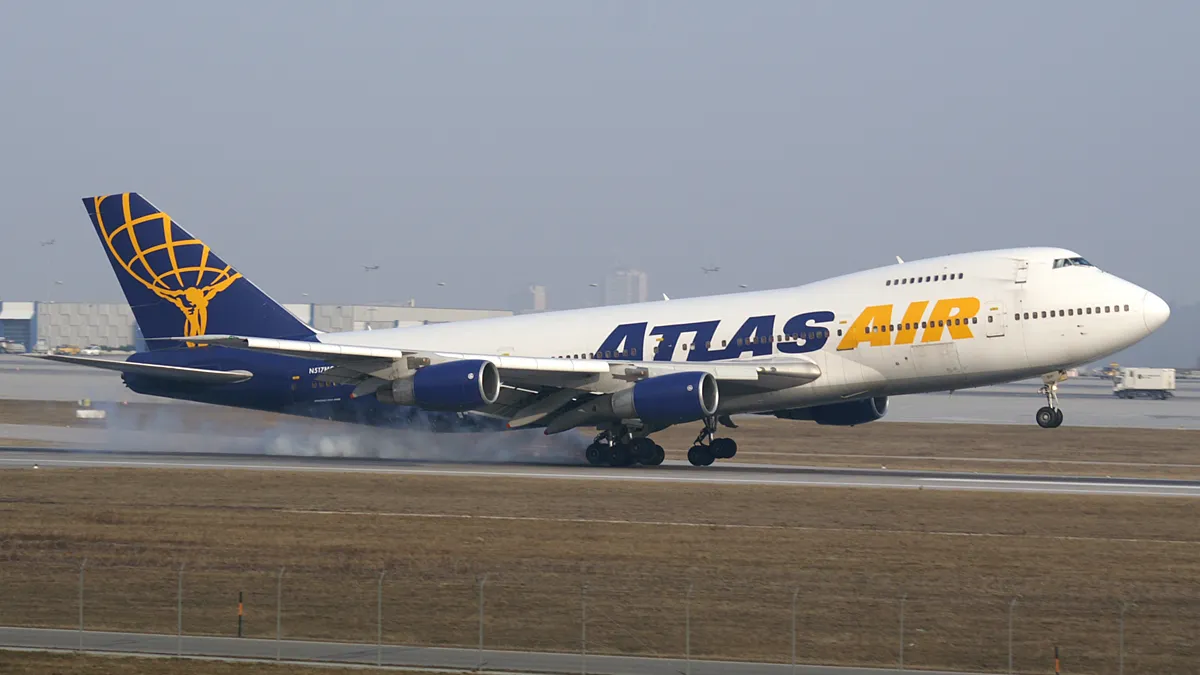Dive Brief:
- Atlas Air Worldwide Holdings will provide air cargo services to Amazon, further expanding the online commerce giant’s fast-growing delivery network, GeekWire reports.
- Per terms of the agreement, disclosed in an Atlas Air earnings report, the New York-based cargo airline, passenger charter airline and aircraft leasing company will shuttle Amazon parcels across the U.S. via 20 converted Boeing 767-300 airplanes.
- Atlas Air also granted Amazon warrants to acquire up to a 30% stake in the company at a price of $37.50 a share, the Wall Street Journal reports. Amazon could acquire 20% over five years and then another 10% over seven years; in addition, Amazon can claim a seat on the Atlas Air board once it exercises warrants for an initial 10% stake.
Dive Insight:
Amazon continues to fuel speculation it’s planning to build its own full-scale delivery network, partnering with Atlas Air just weeks after leasing another 20 Boeing 767s from airplane leasing company Air Transport Services Group (ATSG). Amazon subsequently acquired a 9.9% stake in ATSG as well.
Beyond its air cargo moves, Amazon has in recent months purchased thousands of semi-trailers, invested in drones, and even registered as an ocean freight forwarder.
But the question remains: Is Amazon ultimately planning to become a shipper in and of itself, or is it simply taking steps to drive down fulfillment costs?
Half of all U.S. households are now Amazon Prime members, up from about 35% two years ago, and as the Prime program has grown, so have the company’s shipping expenses. Arguably no Prime perk is more compelling to consumers than free two-day nationwide delivery, while Amazon also continues to expand same-day Prime Now delivery to additional metropolitan markets. Last week Amazon reported first-quarter earnings, and while its net sales increased 28% to $29.1 billion—up from $22.7 billion a year ago—shipping costs also surged a whopping 42% to $3.28 billion.
While the possibility that Amazon could launch its own shipping service is real, financial research firm Cowen & Co. questions the concept’s viability. In a recent note, Cowan analyst Helane Becker argues that Amazon lacks the density and reach of shipping incumbents UPS and FedEx and contends that rival retailers would be unlikely to support a delivery service owned and operated by any competitor, especially Amazon.
"By delivering for other customers, Amazon would be able to tap into sales data and could undercut shippers using their service,” Becker wrote, according to Business Insider. “Most retailers view Amazon as their largest competition and probably won't want to share this data.”












